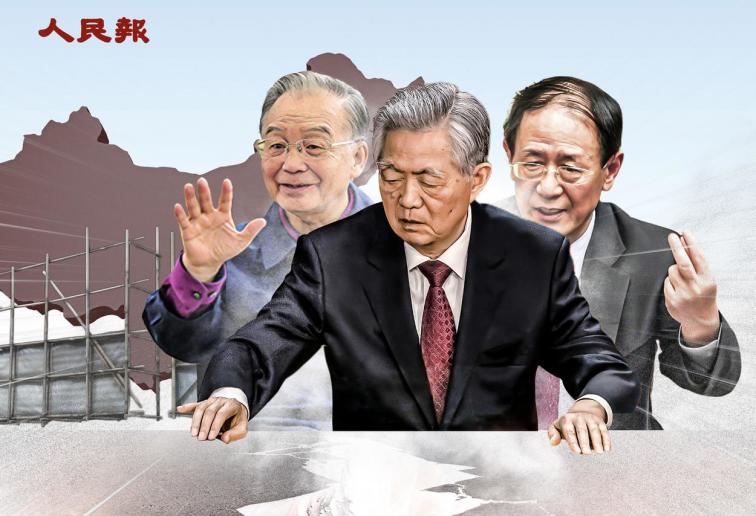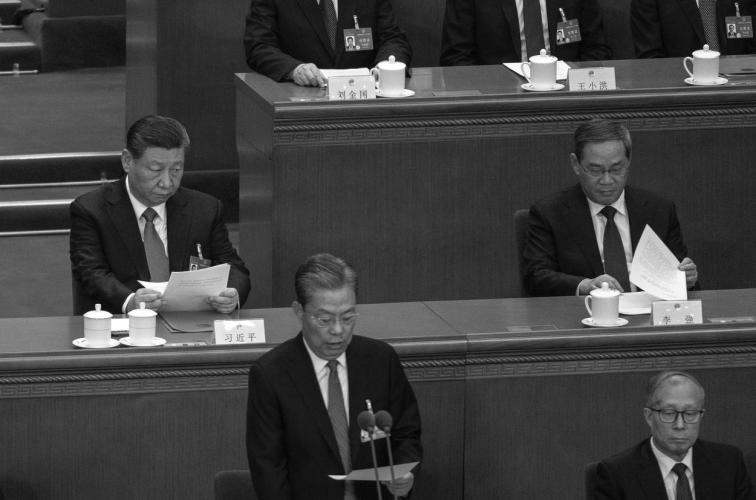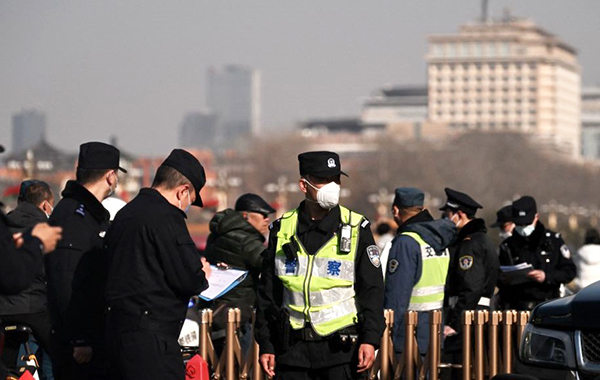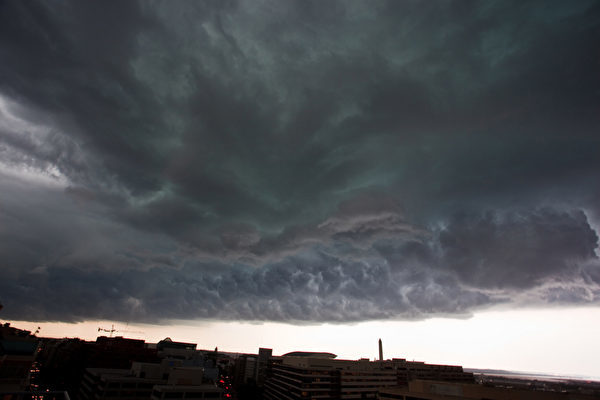Xi Jinping's greatest concern is protecting his family. (People News)
[People News] Xi Jinping has ruled since 2012—almost 13 years now. Domestically, the economy continues to decline: the real estate sector is repeatedly collapsing, unemployment remains high, foreign investment is fleeing, private companies are going bankrupt, local debt is mounting, and consumer spending is weak. Internationally, tense relations with the U.S. and Western countries have trapped the CCP’s diplomacy and foreign trade. Facing dead ends both at home and abroad, and amid growing speculation about his imminent removal, former head of the Inner Mongolia government’s legal advisory office, Du Wen, says Xi Jinping is living in agony, burdened by five major worries:
1. The Loneliness at the Top
Du Wen notes that “the greater one’s power, the fewer one’s friends—true friends even fewer.” Xi is surrounded by sycophants and toadies. Having purged countless political opponents and “tigers,” he has sown deep seeds of suspicion.
Du says Xi is profoundly insecure. A person without security cannot find happiness. He fears that those shouting “Long live Xi Jinping!” by day might muster a coup by candlelight at night.
Rumours say he even hides a bulletproof vest under his pillow—just to find some comfort.
In October 2022, the CCP disclosed that investigators had publicly prosecuted one minister-level official, eight deputy-national-level officials, four Central Military Commission members, dozens of ministers, and hundreds of vice-ministers. In 2024 alone, more than 22,000 officials were indicted for corruption—a yearly increase of 36.8%.
Du remarks that Xi’s loneliness stems from purging his old comrades; those who once ascended with him are now imprisoned in Qincheng. As the anti-corruption campaign continues, no one remains around him who can speak truthfully—only silenced subordinates and echoing yes-men.
2. Restlessness Sitting on a Volcano
Du comments: “A volcano covered too tightly is prone to explode when magma accumulates.” Despite the scenes of admiration in official broadcasts, the sight of blank protest signs and chants of “Down with Xi Jinping!” reveals a hidden eruption pushing him back.
There's a long-standing Soviet joke about a man holding up a blank sheet of paper in Red Square and being arrested. When he complains, “I didn’t say anything!”, the reply is “Everyone knows what you mean.”
This joke inspired the “blank paper” protests in China.
Xi lives in constant fear of exploding popular discontent—even waking in the middle of the night to be told, “Chairman, there’s trouble!”
By 2019, China’s Skynet surveillance network had about 200 million public cameras. By 2020, upon full implementation, the social credit system was supported by 626 million cameras. By 2022, the number had soared to 2.76 billion video surveillance devices.
Why install so many cameras? A July report from the U.S. Centre for Strategic and International Studies found that AI-enabled surveillance effectively suppresses mass incidents.
A November 2020 report from Stanford noted, “Censorship, information control, and mass surveillance allow the CCP to exert enormous power and influence over Chinese citizens’ lives, threatening liberty, security, and self-governance.”
3. Being a Prisoner of Manufactured Reality
Du says that as the top leader, Xi should have the most accurate understanding of the country, but his own system of information control has locked him inside a cocoon of filtered truth. He hears only praises and sees carefully curated reports.
Du quips that Xi might be like a secretive netizen, staying up late reviewing internal memos, seeking elusive truths.
In March 2020, Beijing real estate tycoon Ren Zhiqiang publicly criticised Xi, saying his February speech claiming a “huge anti-COVID achievement” was like “holding up more and more pious cloths to cover an emperor wearing-no-clothes reality.” That metaphor is quite telling.
Du believes Xi both hates and depends on his propaganda machine, depending on it to sustain his myth, but hating how it blinds him to reality. Like the emperor in “The Emperor’s New Clothes.”
4. The Shadow of Historical Judgment
Power controls the present, but not how history judges you. Du notes Xi is ambitious, wanting to leave a bold mark in Chinese historiography.
In 2018, the CCP amended the constitution to remove term limits for the state presidency, allowing Xi to return to lifelong rule, rolling back over 20 years of precedent.
Following the announcement, social media exploded. A post titled “Why I Want to Be Emperor—Notes on Yuan Shikai’s Interview” briefly circulated before deletion. Weibo enforced censorship within hours, silencing or banning many accounts.
Xi was labelled a “great regression, backsliding toward Mao-era authoritarianism.”
Du says Xi deeply fears being branded by future generations as a tyrant, so he is determined to guard the historical narrative with administrative measures—his so-called campaign “against historical nihilism.” He won’t allow any challenge to the history shaped by the Party or himself.
Though he's alive, much of the world is criticising him. Du speculates that Xi might lie awake at night wondering: “When history speaks of me, will it be in reverent praise or bitter ridicule?”
He cares deeply about his legacy. His solution? Never retire, and have no successor—then no one can purge him.
5. The Pain of International Isolation
Domestically, Xi is surrounded by flattery, but on the global stage, he stands alone. China's international environment has become increasingly icy.
In recent years, Chinese diplomats have adopted a hawkish, “wolf warrior” diplomacy style, routinely making statements that violate diplomatic norms. The Times of London described them as “feisty new blood, furiously angry on the global stage.”
It noted that after five years under Xi, Chinese diplomats publicly clash, abandoning previously serious, etiquette-driven Deng Xiaoping-era norms.
Du Wen stated that as the mastermind behind China’s “wolf warrior” diplomacy, Xi Jinping must also swallow its bitter consequences. In international public opinion, Xi has become a villainous figure, portrayed as an expansionist with grand ambitions. On the global stage, he appears increasingly out of place—unwilling to be openly questioned and dismissive of forging common ground with the West. To the more relaxed and open-minded Western leaders, Xi comes across as a fool.
Xi once remarked that officials should be so burdened that they can’t sleep and are jolted awake in the middle of the night. Du Wen noted, “It seems that wasn’t just talk—Xi Jinping is living it.”
(Originally published by People News)











News magazine bootstrap themes!
I like this themes, fast loading and look profesional
Thank you Carlos!
You're welcome!
Please support me with give positive rating!
Yes Sure!